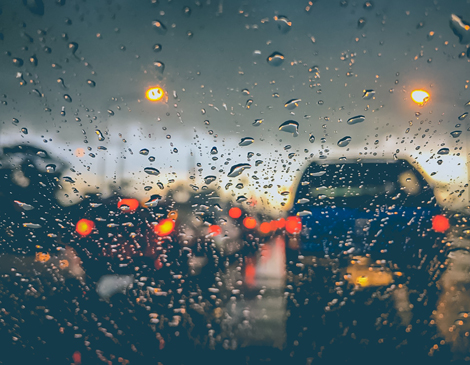Time had fallen back an hour while we slept, so darkness came early as we drove north from Columbus. It was Nov. 5, 2017. The rain had begun fiercely and soon turned relentless.
Cars ahead and behind were swallowed up in it, invisible but for the slow procession of blinking hazard lights. We turned up the radio just as the news came on to announce a gun massacre in a Texas church.
The only words I could muster were drowned out by the storm: “Oh, my God. Oh, my God. Not another one.”
As we crawled further north, tornado watches and warnings interrupted the broadcast. When the wind scudded the car sideways ever so slightly, I took the nearest exit to a gas station and parked next to the bright interior of its convenience store.
Even in the relative safety of the parking lot, the storm was frightening.
I craned my neck at the huge sign pole towering over us. A few minutes earlier, it was a beacon of shelter glowing in the distance. Now, it looked ominous.
I tried to convince myself it couldn’t possibly fall down as a white SUV pulled up next to us.
A few minutes later, two men emerged from the vehicle and dashed to the gas station store. One man wore nice jeans and a crisp blue-checked collared shirt.
Fellow refugees of the road, I thought.
When they emerged from the store, instead of running back to the SUV, they stayed under the store’s overhang, around the corner from the doors and illuminated by the sickly florescent light emitted from the green plastic awning.
One of them pulled something from a bag. From a box of black plastic garbage bags, they unrolled several and stooped to spread them on the wet cement under the awning while struggling to hold them down in the wild wind.
Then, for the first time, I noticed a third man dressed in a full-length garment of some kind.
On top of the garbage bags, they unrolled a prayer rug. In the lashing rain, under the slim shelter of a gas station awning in rural Ohio, they knelt and folded themselves into the posture of Muslim prayer.
I was close enough to see their clothes darken from the pelting rain, the gingham shirt clinging to the young man’s back. I was close enough to see the devotion that shut out the chaos and the customers rushing by for slushies and cigarettes.
My breath slowed. I borrowed some of their faith, though I know little of it, the way I know too little of every faith except my own. It was like entering the eye of the storm.
What I didn’t know then is that Muslims are called to formal prayer five times a day, dictated by the position of the sun. While every prayer includes the remembrance of God, there are also prayers that focus on guidance, the greater meaning of life, mercy and forgiveness. If a prayer is missed, it is to be made up as soon as possible.
What powerful spiritual medicine this must be, to build into one’s hours a repeated, unfaltering recognition of goodness as infinite as time itself.
About seven hours before the three men sent their prayers up to God, a gunman in Sutherland Springs, Texas, walked into a church full of people praying and left 26 dead. There is the eye of the storm, and there is what lies on either side of it.
Less than a year later, on Oct. 27, 2018, 11 members of Pittsburgh’s Tree of Life synagogue were gunned down during services by a man motivated by his hatred of Jews.
The confluence of events that November night in 2017 — the terrifying elements unleashed around us, the prayers in the rain, the 26 dead in a Texas church, the early arrival of darkness — felt as if I had temporarily taken up residence in a metaphor that has only been magnified by the passing of a year.
All of it stands in for the wrenching pull of opposites we live in: peace and violence, fear and faith, hatred and harmony. It all speaks to the peril of falling back — to an ugliness that darkens and destroys. I so want to believe this resurgence of ugliness is passing bad weather and not climate change.
It is a cruel irony that shootings on American soil have become so commonplace that the words “sending thoughts and prayers” have turned hollow. But behind the cynicism is a desperate demand that thoughts and prayers fuel actionable change.
As the new year begins, that change beckons. Civil rights icon and U.S. Rep. John Lewis implores us to make “good trouble.” Rabbi Lord Jonathan Sacks believes this: “For though my faith is not yours and your faith is not mine, if we each are free to light our own flame, together we can banish some of the darkness of the world.”
Does anyone remember how to fight fair? Can we foster the light’s return?
I keep returning to that moment at the gas station, surrounded by the frightening storm and the even more frightening daily news, where I witnessed a faith undeterred by dangerous elements and a refusal to succumb to fear.
That moment was more than a metaphor. It was a flicker of the sacred in the unlikeliest of places, seen through a foggy window, framed by wind and rain. I keep that image close.




